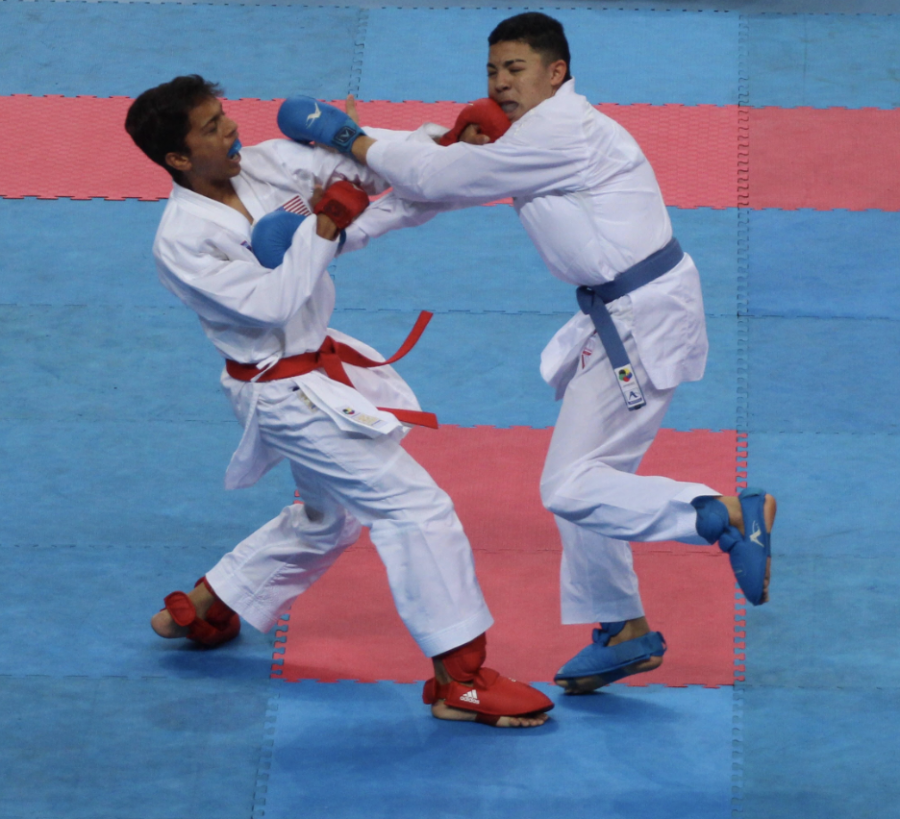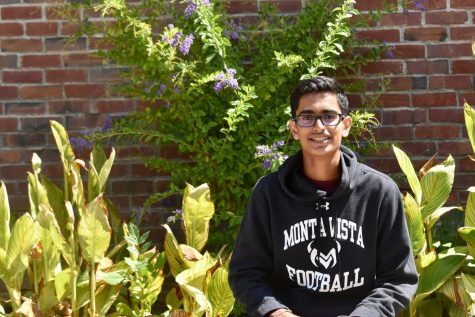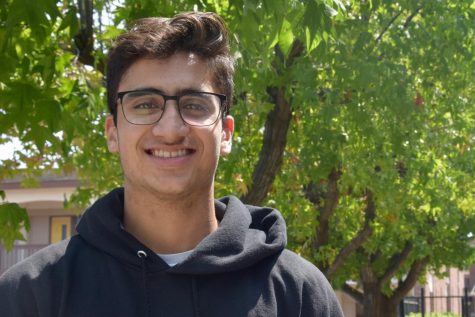Around the world
A look into athletes who traveled around the world for summer competitions
September 26, 2018
For some MVHS athletes, the season is not enough. For others, the school doesn’t offer the sport they play. Athletes combat these barriers by participating in camps and competitions during summer break to experience new cultures, compete at higher levels and potentially increase their rank in the country.
Riding all the way to South Korea
Junior Aidan McNeil has been biking and competing in triathlons for more than half his life. He takes after his parents, his mom being a triathlete, and his dad a professional cyclist. After years of practice, McNeil was finally able to showcase his skill and prove that he is ready for higher competition.
At the age of six, McNeil ran his first triathlon — Silicon Valley Kids Triathlon at Deanza college. Since McNeil did not have a liking for the running and swimming portions of the race, he decided to try bike racing and has been going to competitions around the country and globe ever since.
McNeil is on a nationally-based cycling team, Swift Development team, with most of its riders from California. Even though, the winners of cycling events are decided individually, the team aspect is a huge part of the sport. Teammates can help each other advance by picking guys who finish at the top in the preliminary races.
Through selection races across the country including ones in Arizona and New Mexico, McNeil climbed his way onto the USA cycling 15-16 national team. Last year, the team invited McNeil to participates in their European tour where they competed in countries like the Netherlands, Germany and Belgium.
McNeil was invited this year to the South Korea tour which took place from August 31 to September 4. Teams ranged from France and Finland to Kazakhstan and China, and McNeil was one of the few athletes from the United States. Even though it was a competition, many of the athletes became close friends and language was never a barrier.
“We stayed on the same floor as the French and Dutch team,” McNeil said. “Even though we all don’t speak the same language, you can still kind of communicate and have fun.”
Fighting through the competition
Five judges watching his every move. Representing his country on the world stage. Freshman Trinav Chaudhuri embraced the pressure participating in a karate competition in Rio De Janeiro, Brazil.
From sparring to showcasing weapons, karate requires a unique set of skills. Starting at age four, Chaudhari quickly made his way to the top of the sport. At age 11, Chaudhari had earned his black belt and started getting into competitions at his dojo.
“The dojo I went to had a competition team which my brother was on and my mom would just take me with him,” Chaudhari said. “I joined the team and started winning a lot more, so I started going to other competitions outside that dojo.”
To qualify for the competition in Brazil, Chaudhari had to go through a round of regional and national competitions. Chaudhari won regionals in Yuba City and then headed to Reno for nationals in July. At nationals, Chaudhari competed in the 14-15 age division. To guarantee a spot in the international competition, Chaudhari had to place in the top two. He placed second and headed to Brazil in late August, but was unable to medal in Rio.
Over the Boundary
Every weekend next to the Cupertino Library, adults and children notice the same display of bright white clothing scattered around the field adjacent to the parking lot. On this field, kids like freshmen Keshav Balaji play cricket for California Cricket Academy (CCA) as their parents eagerly watch on the side.
“I was three when I learned how to play cricket and I used to go around the house with a plastic bat and ball just for fun,” Balaji said. “When I was six my dad took me to the CCA summer camp and I loved it and I continued playing since then.”
After that summer camp, Balaji became a full member of the academy and it opened opportunities to play outside of the library. Each year the U.S. sends one cricket team composed of kids under 14 to England to compete in exhibition matches against their best clubs. Two years ago, Balaji joined them on a trip to Taunton, a city in Southwestern England.
“We went to England twice for the international competition there,” Balaji said. “[We participated in] the intercounty championships in Taunton. We had six matches there, part of two tournaments. The second time we went there, we went somewhere north of London.”
Through travelling and living with his teammates for long times on end, Balaji got closer with his teammates and recalls his experiences with his friends.
“Other than touring Lord’s (a famous cricket ground), we just roamed around London, in Piccadilly, before the start of the tournament,” Balaji said. “We learnt a lot about appreciating our teammates and encouraging them if things didn’t go their way during the matches.”
Balaji’s team won all six matches and got first place in the competition. Since then, Balaji has stopped playing cricket, but CCA continues to make the trip every year testing themselves against the world’s best.
Taking it to the next level
Going into the summer, senior Gautham Dasari had a championship on his back. The MVHS boys volleyball team had just won the NorCal championships, beating Clovis High School in five sets and being the first to do it at MVHS. Dasari saw this win as a stepping stone to get him recruited to play at the next level. He would later go for a camp in the summer in Boston to further his chances of getting recruited.
“When I contacted the coach about getting recruited, he basically told me to go to the camp as an opportunity just for him to see me play,” Dasari said. “It’s also a learning experience because they’re college coaches, and they can teach a lot of skills.”
Dasari plays competitive volleyball at a local club, Mountain View Volleyball Club. Competitive club teams all over the nation partake at a national tournament, known as Junior Olympics. At this tournament, many college coaches are seen scouting players, hoping to recruit them.
“[At] nationals [there are] a lot of games going on with your team that they can’t really individually analyze [how] you’re playing,” Dasari said. “By me going to the camp, I guess it allows coaches not just from [the camp], [but] from other schools who attend that camp to help out to get a good understanding of how I play.”
With new skills and techniques taught by other coaches, Dasari was able to get a feel of what college volleyball will look like.
“I was able to experiment and try to implement those techniques into my game” said Dasari. “[I] learned a lot of techniques from a different coaches perspective.”





























